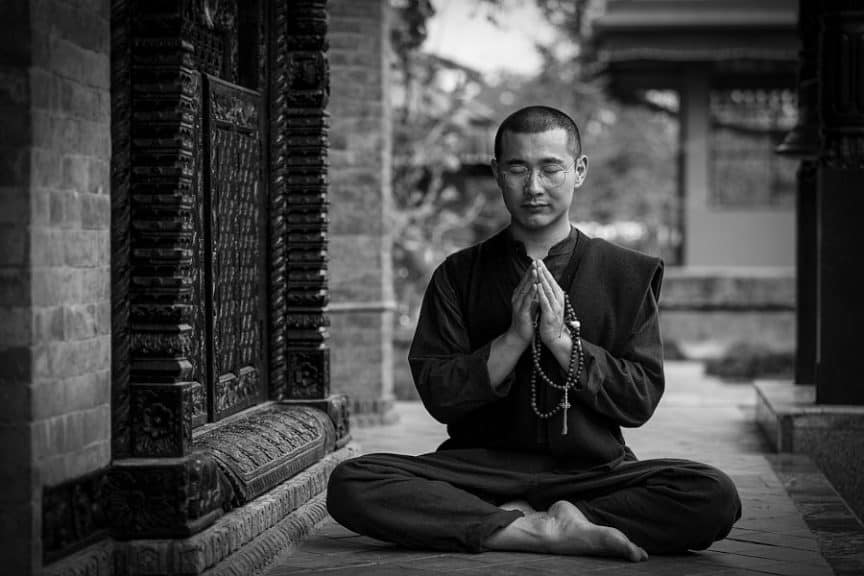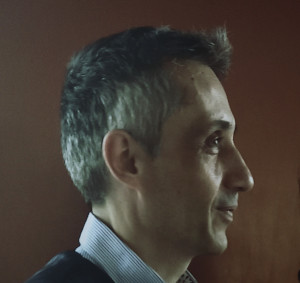Meditation has grown in popularity thanks to many people, including celebrities, taking it up and crediting it with numerous benefits. The relaxation and clarity offered by meditation have several health advantages, including helping you manage depression and anxiety. It is an inexpensive and time-convenient exercise you should look to add to your routine.
For most people, especially beginners, the challenge is to know if you are doing it right. More importantly, how do you know if you are in deep meditation? Herein is an idea of how deep meditation works.
What happens when you are in deep meditation?
When you are in deep meditation, your mind moves from the surface awareness to no awareness and deep relaxation. Your conscious mind is no longer in control, and you fade into deeper rest than even sleeping. During this period where your body is almost shut down, several things that provide the positive effects of meditation happen. These include the following;
1. Your brain waves match your deep rest state.
When in deep meditation, your brain wave activity changes, and the brain produces alpha then theta waves. Alpha waves come when your brain is in an idle mode like daydreaming.
As you get in a deeper relaxation state, you get theta waves, which you usually experience when you are in the deepest sleep stage with no dreams. So, you will be awake technically but experiencing a relaxed state of someone in a heavy sleep.
For more on brainwaves, read our article Isochronic Tones and Binaural Beats: What is – Which is better? – Opens in new tab.
2. You get to a ‘zen’ state.
Thanks to the brain wave activity, you will be in the ultimate relaxed state that many refer to as the zen state. You will feel lightened and freed from any worry. The body releases higher dopamine levels leaving it happy and relaxed.
3. You have an increase in gray matter in the brain.
The gray matter of your brain is crucial for learning and memory. It is found in the hippocampus region and other brain regions responsible for self-awareness, reflection, and compassion.
A 2009 study found that meditators have more gray matter in regions crucial for attention, regulation of emotion, and flexibility. With more gray matter, you can process information better and make better decisions.

4. Lowers your cortisol levels
Cortisol is a stress hormone, and when its levels in the blood are low, it means you are calm and relaxed. One study conducted by the US National Library of Medicine and the National Institutes of Health found that cortisol levels were significantly lowered in the body after days of mindful meditation.
5. Your brain reconfigures itself.
For all this relaxation and the different body processes taking place, your brain gets a chance to restructure itself. It is how, when you end your meditation, you feel rejuvenated and freshened. The deep rest state allows your body’s energy levels and mental focus to replenish.
How to know you had a deep meditation
Meditation experts do not recommend that you concern yourself with whether you are doing the right kinds of meditation or not. You can only try and reflect later if you managed to get to the deep state of meditation.
Even then, obsessing over it, whether during or after your meditation, will ruin your experience. Here is how to tell if you experienced deep meditation;

1. You will not be aware that you are meditating.
As you progress to the deeper state of meditation, you experience a slight to high awareness loss. As you intensely practice the mantras and breath awareness exercises, your mind is lured away from the present moment.
2. You will become lost in thought.
Deep meditation takes you through many thoughts, even ones not related to meditation. You should only acknowledge them and let them pass. As your mind moves through the different states of awareness, you will get lost in them and further lose awareness.
Resisting any thought is counterproductive since you may re-excite your mind and awaken it to full awareness.
Related reading: New to Meditation? Here are the Major Mistakes you can make
3. You lose track of time.
When you are in deep meditation, you will experience lapses in time. As a result, you will not tell when you started meditation and when you ended it. Most of the time, it feels like you have been in meditation for a short time, almost half the time you actually have spent meditating. You also cannot account for or recall what happened in the other half.
4. You experience shallow breathing.
It is common during meditation for one to experience shallow breathing that necessitates taking a deep gulp of air. Your breathing rate matches the amount of rest your body is getting. During intense physical activity, it is heavy.
In sedentary periods it is significantly lower, and while asleep, it lessens further. In deep meditation, your breathing rate falls further than even while asleep as you experience instances of extreme rest. During such moments you may even stop breathing, which causes the need to gulp air, and then everything evens out.
Tips to help you get into deep meditation
While you should not obsess over your meditation level and let your skill build gradually, the following tips can help you attain deep meditation.
1. Practice generosity and service to others
Deep meditation comes from the point of contentment and calm. By offering service to others and putting a smile on other people even with simple actions, your heart achieves satisfaction. This leads you to practice meditation when you are happy and contented, helping you achieve deeper meditation.
2. Practice focus and silence
One of the reasons you may struggle with deep meditation is that you cannot let go of your head’s different thoughts. Your mind keeps the chatter on and receives information from your senses, which prevents you from losing awareness of the present time.
3. Practice yoga and stretching before meditation
Your body may be stiff from work and aches, and this results in restlessness while meditating. Doing stretching exercises like yoga can help you release this tension and restlessness, allowing you to focus and have deeper meditation. (Further reading: Yoga Meditation for Beginners)
4. Watch your diet
Your food can influence your state of mind and comfort, which you perform meditation. Heavy meals will affect your comfort and calm, while light and easy to digest meals are ideal, offering you comfort and allowing you to focus easily.
Other tips you can use include maintaining your meditation schedule, so your body becomes wired and ready for relaxing. You can also add good and calming music to help you relax and sink deeper into meditation.
Related reading: Guide to Different Types of Meditation Practices – Opens in new tab
Do you want to learn more about Meditation? Check out our recommendations at “Meditation Bookshelf” and many free resources at our “Free MeditationLibrary“ – Opens in new tab
Stay in Touch
 Join our newsletter by using the forms on this website or click here!
Join our newsletter by using the forms on this website or click here! Follow us on Google News
Follow us on Google News Follow us on Facebook
Follow us on Facebook
Featured Image by 李磊瑜伽 from Pixabay






